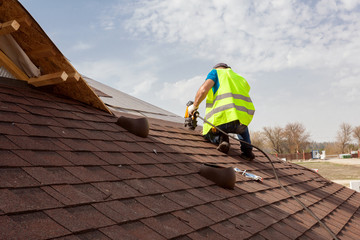How to Choose Roofing Contractors
When you’re trying to find a Roofing Contractor, the first step is to determine whether or not your current roof can be repaired. It’s easy to spot a problem on your own, but you might not have the right expertise to find a solution quickly. Luckily, there are a few easy steps you can take to ensure you’re getting the best value for your money. Here are some tips to help you choose a quality roof repair professional.
Roofing Contractors tend to be honest and stable individuals with a desire to do a good job. Roofing Contractors are generally independent, practical, and thrifty, and they prefer physical, athletic, and intellectual tasks. While many roofers prefer to work alone, some roofers are team players and like a challenge. Some are more creative and introspective, and some even do both! The good news is that there is no one-size-fits-all approach when it comes to the roof repair industry.
After you have narrowed down your short list of prospective contractors, ask for recommendations and references. Meet with at least three and get written estimates for their services. Be sure to compare estimates carefully. Pay special attention to detail and make sure they’re committed to quality work. Also, check out the Business Bureau to make sure they’re a legitimate business. Fly-by-night roofing contractors are a big risk, so make sure you take your time and research every potential contractor thoroughly.
Before you choose a Roofing Contractor, it’s important to look at their insurance policies. Make sure they carry liability insurance as well as workers’ compensation coverage. This type of insurance protects the homeowner should an injury happen to a contractor while performing work on the roof. If the contractor is not insured, the homeowner will be responsible for the medical costs, and homeowners insurance will only cover the damage to the roof. The insurance policy will not cover the injury, but it’s worth checking.
Roofing contractors typically employ a team of workers. Among them are roofers and laborers who remove the old roof and install the new one. Without the proper supplies, these specialists can’t do their work properly. And Roofing contractors are like project managers. They oversee the installation process and coordinate with the different craftsmen to make it as smooth as possible. It’s impossible to accomplish the project without the right materials and skilled professionals.
The most important thing to remember when hiring a Roofing Contractor is to read their contract. It should include details about the work that’ll be done, how long it will take, and how you’ll be able to pay the contractor in installments. You should also be clear about the costs that may arise from overruns. Some roofing contractors require a deposit before beginning work, while others don’t. Regardless of whether they work with a credit card, be sure to wait until the project is finished to be certain you’ll be getting the best value.
Roofing contractors can help you upgrade your roof in many ways, including ice melting systems. You may even want to add vents. A professional roofing company will handle all these upgrades and more. They will ensure that your roof is in good condition and provides the necessary protection for your home. It is always better to hire a professional roofing company than to do the work yourself. It’s always best to hire a roofing contractor who has extensive experience in both residential and commercial roofing projects.
In terms of size, the Roofing Contractors industry is expected to expand over the next five years in both commercial and single-family housing markets. However, the downstream residential construction market is projected to decline at a rate over the next five years. However, the growth rate for the Roofing Contractors industry is still high, which is good news for all contractors. So, if you’re interested in learning more about this industry, you should read on!
When choosing a Roofing Contractor, it’s important to look for companies that follow local regulations. For example, in the state, a roof can be more complex than just shingles on plywood. A roofing system comprises many components, including a synthetic underlayment, ice and water protector, ridge shingles, starter strips, flashing, and vents. A roofing contractor will use products that comply with the applicable building codes. Ice and water protection is required on eaves and valleys, while in other jurisdictions, ice and water protection is not necessary.



